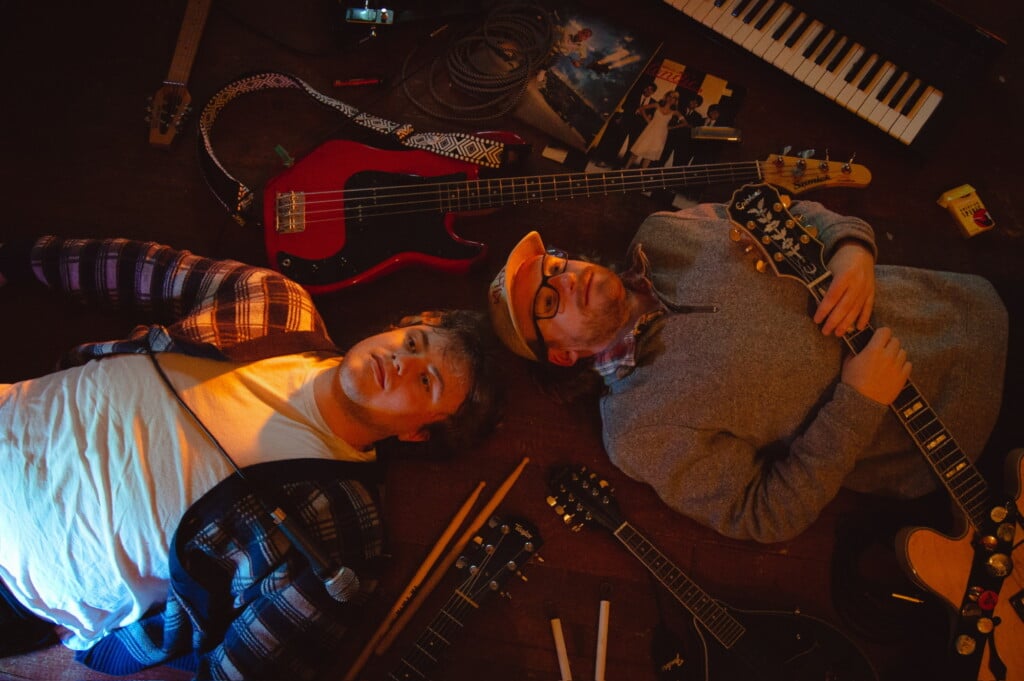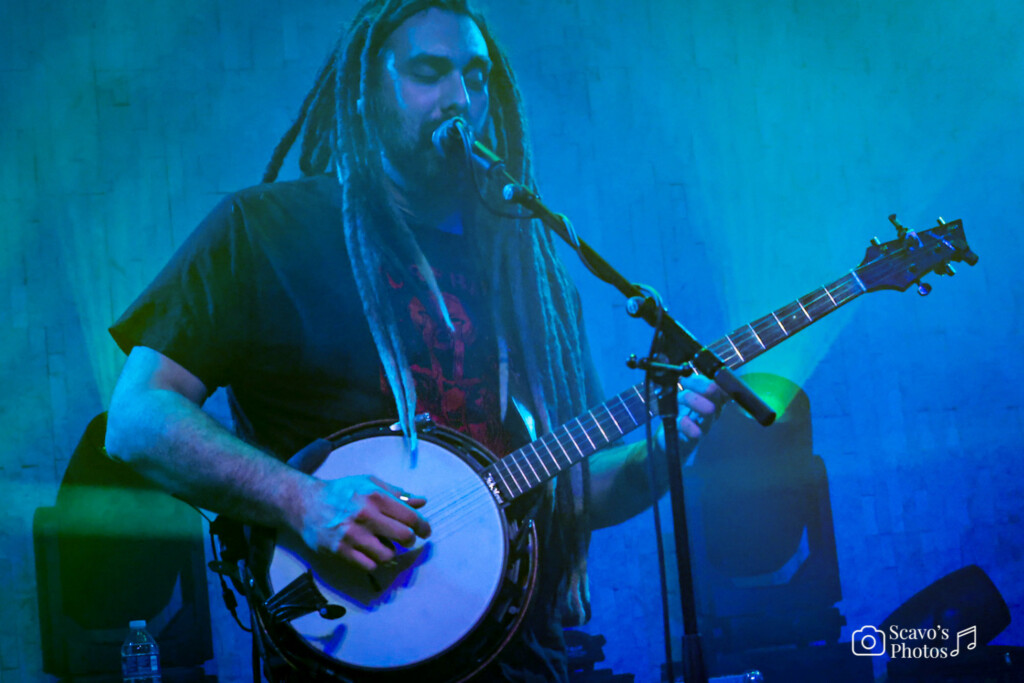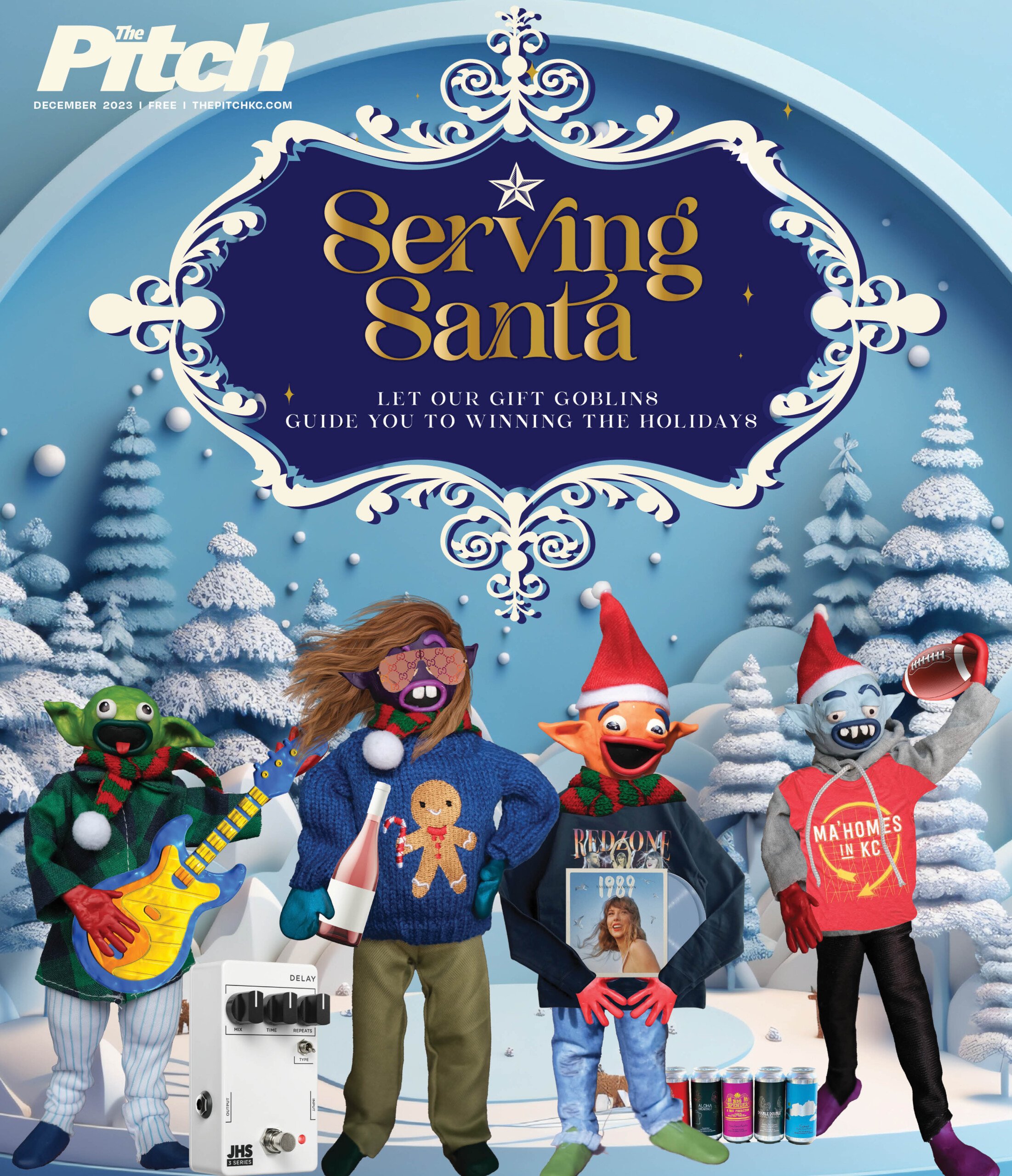Kevin Morby captures slices of humanity in This is a Photograph
Kevin Morby was going through old family photos in his childhood home in Kansas City.
It was January 2020, and earlier that day, his father had collapsed at a family dinner and had to be taken to the hospital. Hours after the shock of those events, Morby held a photograph he had never seen before. It was of his “father on the front lawn, with no shirt on,” as he sings on the title track of his upcoming album, This is a Photograph.
That moment highlighted a severe contrast to the man he had seen earlier in the night—a concise realization about aging and our complex relationship with time.
Fast forward a couple of months, and the world begins to collapse.
Fast forward a few more months. Morby’s father has recovered, and Morby is walking the streets of Memphis, conjuring the city’s ghosts to guide him through the quiet depths of the pandemic.
The culmination of these events is an evocative meditation where many emotions exist at once. The album serves as a record of living through an unfamiliar and overwhelming period. At times, a eulogy—and others, an urgent thirst for life.
Morby taps into the emotional undercurrent at the intersection of global tragedy and the shifting cadence of an aging family. Rich arrangements fill the space around isolation and build an environment that is as intuitive as it is cinematic.
On a windy April afternoon, Morby met at City Market to talk about his seventh studio album releasing May 13 via Dead Oceans. A few days after his 34th birthday, we discussed some revelations that come with age and what inspired his latest work.
The album was written and recorded over the past two years, and Morby says it was a way to process the overlapping events of his father’s health scare and the world on pause.
“The best way to describe my music, often, is that it is like a form of therapy for me,” Morby says. “An event will take place, and I’ll have to process it. Then it’ll just come out all at once, like while I’m writing music.”
“This is a Photograph,” the title track, came to him months after the incident with his father. Like a racing pulse, the song builds, as if recognizing time passing—“The year that you were born, the year that you are now”—a poetic acknowledgment of what he calls the “the changing of the guard.”
“When you’re born into this world and you have these parents or whoever your guardians are, you just figure that they know everything—they’re going to keep you safe. And then there’s that sort of weird period that I think I’m living in right now, being in my thirties, where suddenly it’s like, ‘I’m going to have to take care of my parents.’ And just that realization and that moment of clarity that you suddenly are the adult in the room,” Morby says.
The guitar riff and drum beat accelerate behind increasingly earnest vocals where he speaks simultaneously to memory and intention, exclaiming, “This is what I’ll miss about being alive.” A line that’s meant to be a “window to the past” and a request of the future.
At the same time he was contemplating this new phase of adulthood, Morby was grieving a fresh loss: performing live.
“I was trying to create something that I knew I was going to perform live. That’s what I love about being alive probably the most, is being on stage and being able to play music for people,” Morby says. “I was doing it sort of in the hopes that the world is going to open back up and that I could access that feeling again.”
That urgent desire to get back to the stage reverberates through the track and gives it an energy like feeling the sun on your skin for the first time in too long. The mind forgets, but the body remembers. The song was recorded live at Sam Philip’s Recording Co. in Memphis, and the electricity is apparent.
In a cutting observation, Morby declares, “Time’s the undefeated,” establishing that although sometimes it feels like we are in a fight against time, there is no real competition. But instead of giving up, maybe we just go on anyway.
In “Random Act of Kindness,” a yearning plea that opens like a prayer over an organ, he sings, “Sun came up, through my hands; sun came up, with no plan,” giving us wistful optimism and a dedication to continuing on. The sunrise symbolizes an inevitable new day on a timeline we don’t control.
“I wanted it to feel hopeful but also represent and speak on the fact that, no matter how bad things get, you know, you might just go on living. You might have to keep waking up and facing that sort of reality every day,” he says.
Although the record feels very present, Morby admits that it was an uninspiring time. He was grateful to have this project to focus on.
“It really kept me sane in a lot of ways, knowing that I was sort of documenting this time and it was helping me process a little bit,” Morby says. “But with that said, I think it’s going to take a lifetime to fully realize our thoughts on it.”
When the whole world shares varied experiences of the same tragedy, the oversaturation of information can start to feel mundane.
“With a global tragedy, it’s almost boring or something. No one wants to talk about it because it was just this horrible thing that we all had to go through. And, you know, everyone had their own experience, of course, but it was just like people want to move on. And I understand that,” Morby says. “And I think that’s a big reason why I dove into the past. Like that’s what became inspiring to me and why I spent so much time in Memphis.”
Morby first visited Memphis in 2019 while on tour, and he says stepping into the city was like a siren going off. In subsequent visits he started viewing it as a “citywide museum” filled with relics of the past.
“Some places will just really speak to me on a level that is undeniable, and I have to see it through. Memphis was just this place for that where, it’s like a lifting of a veil where suddenly a place just becomes so exotic to me and I have to be a part of it,” he says. “My relationships with these places are no different than my relationships with friends or with romantic partners in the past where it’s just all about time and place. Suddenly something just clicks, and I’m like, ‘Oh, wow. I’ve fallen in love with Memphis, and I want to be in its embrace at all times.’”
While writing music for this record, he stayed at the historic Peabody Hotel and would walk the streets, feeling the history that lives there. As if sending us a location postcard in lyrical form, he is able to channel a deep sense of place to intuit feelings of time stolen and the drive to make the most of a fleeting life.
Like with the family photos, he found solace in this historical perspective. “Even though those times were certainly very complicated in their own ways, it just felt inherently more simple because they weren’t dealing with this virus,” Morby says.
While this idea was a comforting respite from the bleak backdrop of the world at the time, this look into the past was no distraction from death.
During his wanderings in Memphis, Morby would visit the site where Jeff Buckley, an American singer-songwriter, drowned in the Mississippi river after wading into the water with his shoes and clothes on.
“Take off your jacket, and take off your boots; Just don’t wash up on Beale,” Morby sings on “Disappearing,” a rumination on that faint line between life and death.
On “Coat of Butterflies,” another track inspired by Buckley, Morby describes America as a place, “Where you’re always in someone’s wake; or you’re singing while you’re sinking in sand”—a sentiment that speaks to death’s heavy presence and the desire to leave a mark.
Morby lifts us out of the melancholy on “Rock Bottom,” the album’s rock infused second single inspired by the quick rise and ensuing burnout and death of James Lee Lindsey Jr., who performed as Jay Reatard. Morby referenced Reatard’s 1999 Grown Up, Fucked Up as what he wanted to achieve sonically.
It’s a fun song with a plucky cow bell and an underdog vibe—“All of my life, everybody roasting me; all of my life, like I was a piece of meat. It’s cold down here, despite the heat; in the rock bottom. Bop bop.”
Morby tapped his frequent and, until recently, Kansas City-based collaborator Johnny Eastlund to direct the music video. The two developed an “ice cream themed nunchucking western” where Morby co-stars with artist and model Ariel Kellog to take on a sinister talent show judge played by comedian Tim Heidecker.
Morby connected with Kellogg on Instagram after he developed a new interest in nunchucks during the pandemic.
“I got super into kung fu films and literally dove back into my Ninja Turtles obsession. I was watching this live action film as a childhood comfort thing. I remember talking with friends about that around the time where like, the friends would be like, ‘Man, I want to eat box macaroni and cheese.’ Like, all this weird childhood stuff. Then it became kind of this cool thing and there is a whole weird world out there for that,” Morby says about nunchuk content. “My friend who’s in that video, Ariel, we just discovered each other on Instagram, because if you put a nunchucking video into the world, the internet will just send you back every other nunchucking video that’s out there. And Ariel’s kept popping up, and we became buds, and we made this video together.”
It was a rare occurrence of the algorithms creating a real connection. Morby recently started publishing a “fan-club-meets-newsletter-meets-open-diary” on Substack as a way to connect with fans outside of social media. Even though he has a decent and active following on Instagram, the interactions he’s had so far on Substack have been refreshing.
“It’s funny because I have this other platform that can reach tens of thousands of people. But then having this other thing where, like, six people read it and there are like three comments, and the comments are so thoughtful, and it’s such a conversation,” he says. “I was like, ‘Man, this is more just like talking to a person’ whereas…social media isn’t like that. I don’t know what it is, but it’s not that.”
We talked about social media in 2020, which Morby referred to as, “The absolute worst, you know. It was just chaos.”
“There are no real rules or repercussions and it’s just so silly because it literally exists in these few inches,” he says, pointing to the phone on the table. “Yeah, that was a terrible time to be on the internet, but what else could we do? We had nothing else to do.”
That sentiment comes through on “It’s Over,” where Morby laments, “It’s over, it’s over now.” It’s the most direct reflection on the pandemic. The initial reaction to this song was “Shit, it really did feel like that.” There is a dig to a certain senator who “[flocked] down towards Mexico” during the devastating Texas freeze and a line about leather floors burning in the wildfires in Malibu—“Smelled like bulls cooking on the shore.”
This song is a cathartic reminder of where we’ve been—isolated, pre-vaccines, living through multiple climate disasters and an intense cultural and political inflection point.
“It wasn’t just like we decided to take a two-year vacation where none of us were going to do anything. It was to the backdrop of a crazy political climate and race climate and just being surrounded by a lot of death,” Morby says.
With more than a year of distance between now and then, this song serves as a moment of grief that maybe we needed. We went from a dead stop, a feeling Morby described as being “stuck in goo or being a bug in a drain,” to a “new normal” without a lot of time to process in-between.
“Like if you were actually stuck in Jello, there’s something kind of comforting, and it’s a kind of nice, nurturing feeling. But at the same time, it was this terrifying, claustrophobic, really strange feeling,” Morby says. “I knew that that moment in time was going to be such a weird snapshot for everyone.”
Like the image of his father, it reveals age and change. Creating documents in this way also builds an intentional archive that allows us to make sense of where we are on the timeline.
“I sort of knew while writing it that it was going to be a dated song, and it’s like a time capsule. That’s the whole point of the album being called This is a Photograph. It’s looking at it as a record. And I was thinking a lot about what the word ‘record’ means. It’s a document of the past,” he says. “And that’s why thinking of it as a photograph really stuck out to me.”
That sway between looking back to move forward, Morby’s poetic lyrics and some grand orchestral arrangements, ease us out of fully succumbing to despair.
“There’s this whole sentiment on this record of like saying goodbye to good times and the good times being over my shoulder, like what I talk about in ‘It’s Over.’ I wanted it to feel at once like this melancholy saying goodbye to certain things, but at the same time, celebrating that there’s this new future that no one knows exactly what’s in store for us,” Morby says. “I’m letting go of something. I’m sad about that, but at the same time, that means something new is coming. So let’s celebrate that.”
It’s a cautious optimism that shines on “Stop Before I Cry,” an achingly romantic song with lush instrumentation, where flutes, strings and harps transport us to what feels like a lovesick, moon-drenched dream. Morby sings to his singer-songwriter girlfriend, Katie Crutchfield (aka Waxahatchee), “I wanna go out dancing, as soon as the world returns; cause Katie when you’re dressed up, it’s hard to find the words.”
“It’s kind of a Hail Mary. No matter what happens, you know, I love you,” Morby says. “Love can feel very overwhelming and crazy a lot of the time.”
In the time between his stint in Memphis and our chat, the world has returned. Morby says he and Katie have been dancing—they recently shut down a bar with their friends, and remembered what a good time feels like.
“It was so fun. And I thought, ‘Oh, this is that moment that I was searching for when I wrote that song,’” he says.







